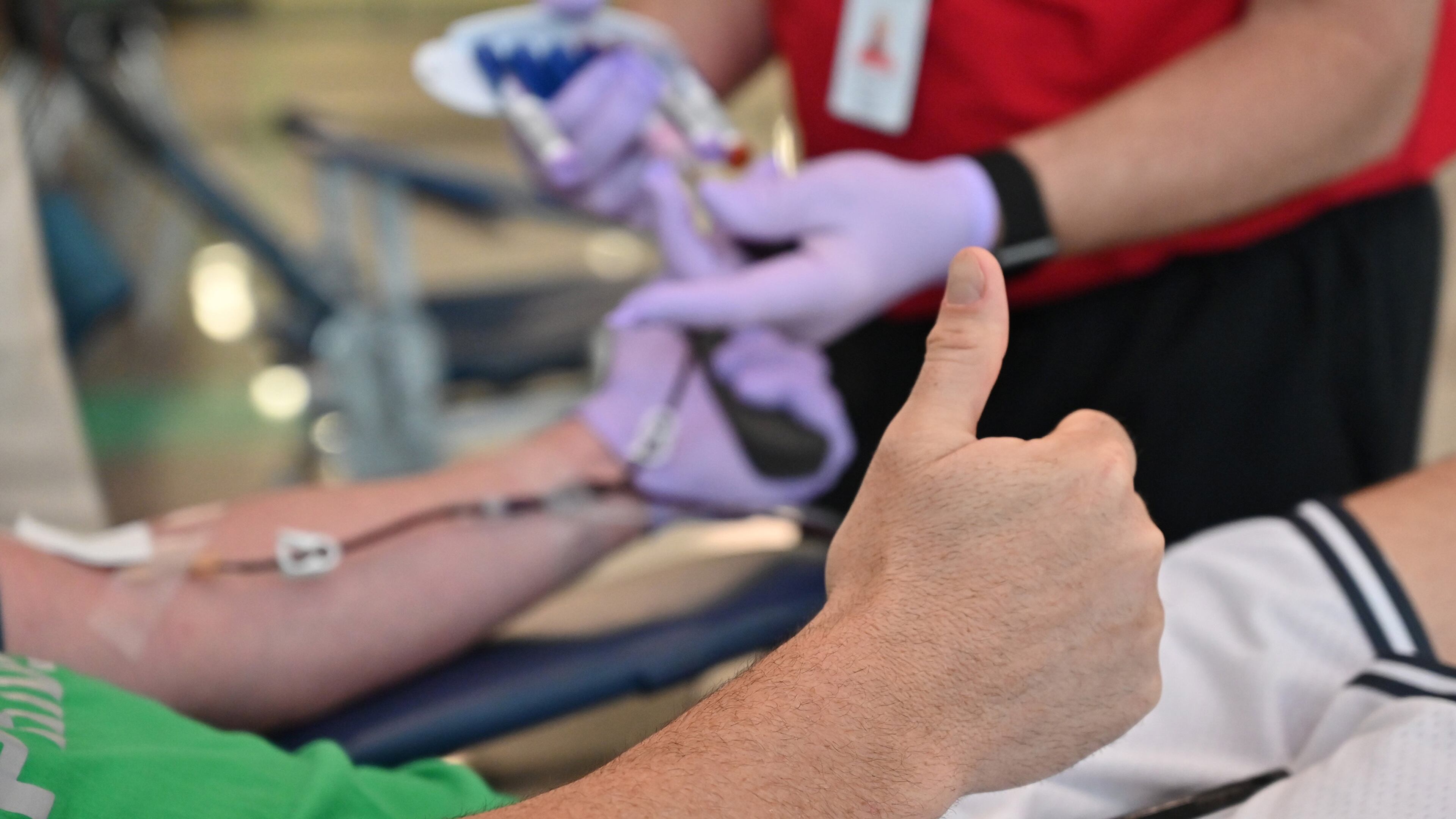In Georgia, better COVID testing soon, and news of a child recovering

The fight against COVID-19, the disease caused by the novel coronavirus, has been hobbled by the scarcity of accurate testing and the slow return of results.
This may change.
On Tuesday, Gov. Brian Kemp’s office and the state’s public colleges and universities announced plans to dramatically increase coronavirus test processing capacity in Georgia by some 3,000 tests per day.
The state has obtained equipment and testing supplies to expand capabilities and will begin ramping up as soon as Wednesday, according to a news release. Fuller capacities are expected to be operational within five to seven days.
As of Tuesday at noon, state and commercial laboratories had processed fewer than 16,181 tests of Georgians, and health systems and patients have complained to The Atlanta Journal-Constitution of prolonged waits to get results.
So far, an Atlanta Journal-Constitution analysis shows, the state has ranked near the bottom in the U.S. in testing per capita. Some patients have died before the results of their tests were known.
Epidemiologists fight the spread of disease by identifying those with the virus, then by tracking their contacts and isolating those people.
Our current tactic, isolating everyone, is much less practicable.
The announcement comes from a partnership between the state, the University System of Georgia, Emory University and the state’s Department of Public Health.
AJC COMPLETE COVERAGE: CORONAVIRUS IN GEORGIA
The news release said Georgia universities will transfer equipment for testing from labs to accredited labs at Georgia State, Augusta University, Emory and the state’s public health lab.
The Georgia Department of Public Health updated the state’s COVID-19 tally Tuesday evening, reporting 4,117 cases of the disease and 125 deaths.
The agency posted an explanatory note on its website that read, “Today’s significant increase in cases is in part due to additional laboratories reporting to DPH, and also improvements in electronic reporting from other laboratories.”
So far, Georgia’s public health agencies and health systems have rationed tests for the very sick, vulnerable people — such as those who live in nursing homes — and emergency workers.
It’s unclear whether that will change, despite this announcement.
Among those most vulnerable to coronavirus are prisoners.
An employee at a sprawling immigration detention center in South Georgia has tested positive for COVID-19, the company that operates the facility confirmed Tuesday.
PHOTOS: METRO ATLANTA ADJUSTS TO CORONAVIRUS
CoreCivic — the Nashville-based corrections business that runs Stewart Detention Center just outside of Lumpkin — said the unidentified employee last worked there on March 20 and is now isolated at home.
Nine other employees who had direct contact with that person have been told to self-quarantine at their homes for 14 days. In addition, 33 detainees who may have been in contact with the infected employee have been placed in quarantine in a separate housing unit at the facility.
News of the positive coronavirus test result comes as U.S. Immigration and Customs Enforcement and prison companies such as CoreCivic are scrambling to prevent the highly contagious disease from gaining a foothold in immigration detention centers in Georgia and across the nation.
Reducing the population in some prisons could help.
The Georgia Board of Pardons and Paroles has started reviewing some inmates for early release because of the pandemic, officials announced Tuesday.
The process, which the board said was to help state prisons deal with the virus, could lead in the next 30 days to the release of up to 200 inmates who are serving time for nonviolent offenses.
PHOTOS: HARTSFIELD-JACKSON IN THE AGE OF COVID-19
To be considered for the early release, the inmates must be within 180 days of completing their prison sentences or within 180 days of their tentative parole date, according to the board. Most will be released and serve the remainder of their sentence on probation.
The announcement comes after several weeks of outcries from inmate health advocates who say the close confines of prisons make inmates and staff particularly vulnerable to the spread of infectious diseases.
Some Georgia inmates have already been hospitalized with COVID-19, and one man, incarcerated at Lee State Prison, has died.
Southwest Georgia Suffering
Dougherty County, a coronavirus hot spot, saw its death toll rise Tuesday to 30 victims, according to Coroner Michael Fowler. The Southwest Health District reported another 19 deaths in counties surrounding Albany, including seven in Terrell and five in Lee.
Fowler has witnessed his share of suffering. He spent nearly two decades as a death investigator with the Georgia Bureau of Investigation. He has helped respond to 23 major disasters around the globe, recovering the dead in the aftermath of the 9/11 attacks, the 2004 tsunami in Thailand and Hurricane Katrina in New Orleans.
Now, his small office with three part-time employees and an administrative assistant is straining to keep up with the coronavirus deaths.
“They are people I know and people I’ve worked with,” he said. “You go in that hospital and people in those rooms hooked up to the machines are people you know.”

A cluster of COVID-19 cases were traced to two funerals in Fowler’s town, and funeral directors are asking the governor for guidance to keep such a tragedy from happening again.
State Rep. Rick Williams, a funeral home director from Milledgeville, asked the governor for clear directives on how funerals are conducted after a jumble of phone calls from concerned colleagues.
Williams said some funeral homes are ignoring guidelines from an industry trade group, the National Funeral Directors Association, to maintain social distancing, limit the size of gatherings and ban indoor services. The group recommends graveside services only.
And some businesses “are telling families they can do anything they want,” he wrote to Kemp’s administration, urging that the governor send clear guidelines to every funeral home.
Child Now Off Ventilator
The family of Emma, a 12-year-old girl hospitalized for more than two weeks at Children’s Healthcare of Atlanta at Scottish Rite, said Tuesday the child’s condition has continued to improve. Though she faces a long recovery, the family said Emma was healthy enough to be taken off a ventilator.
In a Facebook post, the mother of the child said, “Em is on her way to recovery, today the ventilator came out and they continue to monitor her.”
“It was a good day,” she said. “I got to hear my girl’s voice and see her smile and my heart is happy.”
The virus tends to be mild in children. But in Emma’s case, she went to the hospital multiple times with a persistent fever, and on March 15 was admitted with what was believed to be pneumonia. Her family said Emma had no known pre-existing conditions, and she was tested for COVID-19 after her health worsened.
According to data from the state Department of Public Health, only 1% of confirmed COVID-19 cases in the state — or approximately 10 cases — have been documented in people 17 and younger.
The AJC is not publishing Emma’s last name to protect her privacy.
Staff writers Jeremy Redmon, Joshua Sharpe, Brad Schrade and Greg Bluestein contributed to this article.



